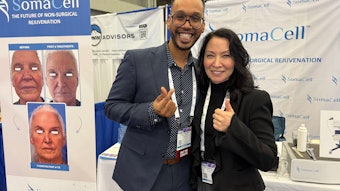
The well-documented role of thyroid hormone receptor (TR)‐mediated signalling in skin physiology and pathology warrants a fresh look at the potential of topical L-thyroxine (T4) as a treatment for skin ulcers and telogen effluvium, say researchers Ralf Paus, et al of the Dr. Phillip Frost Department of Dermatology & Cutaneous Surgery, University of Miami Miller School of Medicine, in a Viewpoint paper accepted for publication in Experimental Dermatology (July 18, 2020).
The researchers note that topical hormone therapy with ligands of nuclear hormone receptors, including glucocorticoids, vitamin D analogues and retinoids, is well accepted in dermatology. “Yet thyroid hormone receptor (TR) agonists have been widely ignored, despite abundant clinical, cell and molecular biology, mouse in vivo, and human skin and hair follicle organ culture data amply documenting a role of TR‐mediated signalling in skin physiology and pathology,” they write.
The paper reviews the role of TR-mediated signalling on wound healing and hair growth as well evidence of the impact of thyroid hormones on human epidermal and hair follicle physiology, hair follicle epithelial stem cells and pigmentation, keratin expression, mitochondrial energy metabolism and wound healing.
They argue that, based on this evidence, “short‐term topical T4 treatment deserves careful further preclinical and clinical exploration for repurposing as a low‐cost, effective and widely available dermatotherapeutic, namely in the management of skin ulcers and telogen effluvium, and that its predictable adverse effects are well‐manageable.”











